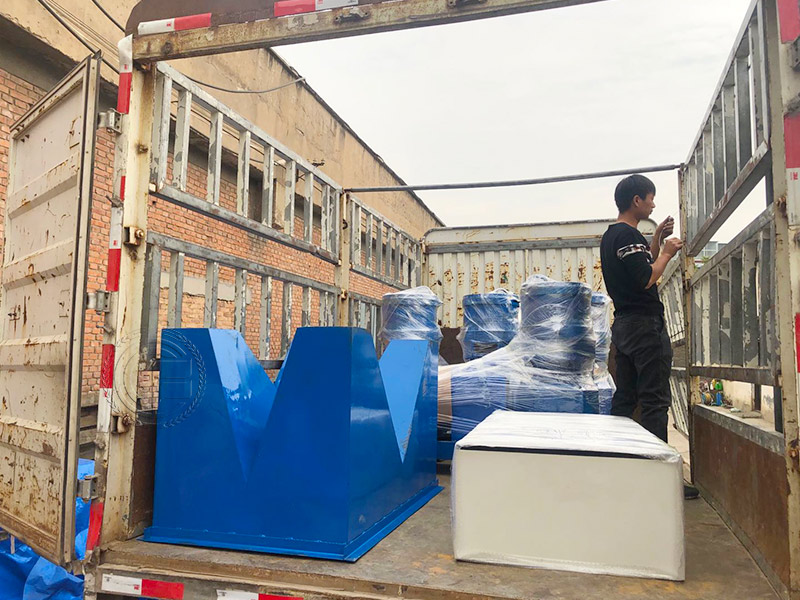Shipping Soon to Pakistan! Feed Pellet Machine
Shipping Soon to Pakistan! Feed Pellet Machine
After two months of precision manufacturing and comprehensive commissioning, the feed pellet machine customized for a Pakistani customer has completed all shipment preparations and is about to depart from the Port of Guangzhou. This equipment, combining efficient pelleting technology with South Asian farming characteristics, will serve large-scale farms in Punjab Province, injecting new momentum into Pakistan’s livestock industry through Chinese intelligent manufacturing.
As a major livestock producer in South Asia, Pakistan maintains a large cattle, sheep, and poultry farming industry, placing stringent demands on feed conversion efficiency and palatability. This customized feed pellet machine utilizes ring die pelleting technology with a precisely set compression ratio of 1:8. It can transform mainstream local raw materials such as corn and cottonseed meal into pellets with a diameter of 3-8mm and a hardness of 2.5-3.5 kgf, making them suitable for cattle and sheep, as well as for poultry. High-temperature conditioning (85-90°C) during the pelleting process kills pathogens such as Salmonella in the raw materials, achieving a sterilization rate of 99.9%, significantly enhancing feed safety. The equipment has undergone numerous localized optimizations tailored to Pakistan’s power supply conditions and raw material characteristics. It’s equipped with a wide-range voltage adapter (200-440V) to cope with voltage fluctuations in rural power grids. A magnetic separator has been added to the feed system to effectively remove metallic impurities that may be present in cottonseed meal and reduce wear on the die. Testing has shown that the equipment can produce 1.5 tons of pellet feed per hour, using 18% less energy than traditional local equipment. It is also more adaptable to raw materials with high impurity content, achieving a consistently high yield of over 97%.

During the final inspection before shipment, the technical team simulated actual farm conditions in Pakistan. During a 12-hour continuous pelleting test, the equipment performed smoothly, with a pellet length deviation of ≤1mm and a moisture content of 12% ± 0.5%, fully complying with Pakistani feed industry standards. A customized logistics solution was also implemented: the main machine is packaged in rust-proof and shock-resistant wooden crates, while core components such as the die and rollers are individually sealed and packaged. A bilingual operating manual, maintenance diagrams, and spare parts kit in Urdu and English are included. “We were pleasantly surprised by the cost-effectiveness and customization capabilities of Chinese equipment,” a customer representative said during a video inspection. Their farm, which has 5,000 beef cattle and 10,000 broiler chickens, previously used a pellet machine that consumed a lot of energy and frequently malfunctioned. With the new equipment, they expect feed conversion rates to increase by 10%, shorten the breeding cycle by seven days, and generate approximately $200,000 in additional annual profits.
A follow-up service system has been pre-installed: a partnership with a Lahore agricultural machinery repair company provides 48-hour on-site response; an Urdu-language technical hotline supports remote troubleshooting; and engineers will arrive within 72 hours of the equipment’s arrival to perform installation, commissioning, and technical training, ensuring rapid commissioning.
This pellet machine, about to embark on its long voyage, is a vivid example of China-Pakistan agricultural equipment cooperation. We will continue to focus on the needs of the South Asian market, providing more adaptable and reliable equipment solutions to help the local livestock industry achieve scale and efficiency.
Prev: A full range of 1-5 ton feed pellet production lines is a hot-selling choice Next: Extruded Feed Pellet Machine Shipped to South Africa




